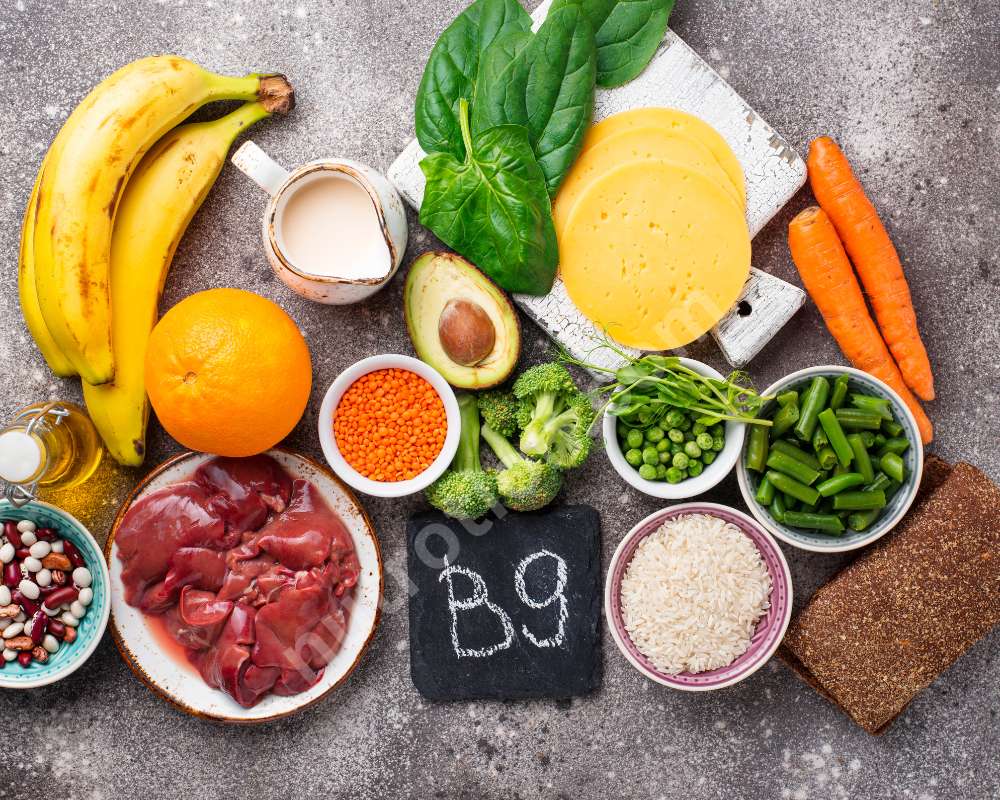Red blood cells (RBCs) are not only the hardworking actors but also the ongoing couriers of your circulatory system, which keep delivering life-sustaining oxygen to each and every part of your body. An RBC count that is in a healthy range is a vital element for keeping the energy up, having stamina, and maintaining good general health. If you would like to know what measures you can take to boost your RBC rate, here is a holistic plan that involves both dietary alterations and changes in your habits.
Dietary Powerhouses

Iron-Rich Foods: It is the iron that forms the basis of hemoglobin, the protein present in RBCs that hold on to the oxygen. An increased iron intake is easier to achieve by including lean meats, seafood, poultry, and organs like liver in your diet. For instance, beans, lentils, iron-fortified cereals, and leafy green vegetables like spinach and kale are excellent plant-based sources. On the other hand, bear in mind that iron from plant source (non-heme iron) usually is more difficult to absorb than iron from animal products (heme iron). If you want to improve iron absorption from plant-based meals, consume them with foods rich in vitamin C like citrus fruits, bell peppers, or tomatoes.
Vitamin Powerhouses: A number of vitamins are involved in the production of RBCs.
- Vitamin B12: Generally rich in animal products such as meat, eggs, and dairy. People consuming vegetarian or vegan diets may have to supplement their diets with B12 to reach their daily requirements.

- Folate (Vitamin B9): Lettuce, beans, nuts, and fortified cereals are rich in folate. Folate deficiency may result in a certain type of anemia called megaloblastic anemia.

- Vitamin A: Although not directly related to the formation of RBC, vitamin A is involved in the process of iron metabolism. These foods include liver, fish, dairy products, and vegetables like orange and yellow-colored carrots and sweet potatoes.

- Vitamin C: Increases the amount of iron absorbed from plant-based foods. Consider citrus fruits, bell peppers, and tomatoes as part of your diet.

Symptoms of RBC Deficiency
Anemia, a disease due to a low count of red blood cells or hemoglobin, appears in different ways. Sometimes the severity of the symptoms depends on how bad the anemia is. Here’s a look at some common signs to watch out for:
- Fatigue and weakness: It is the main known symptom of anemia. One of the most prominent signs is feeling tired most of the time, often lacking energy, and experiencing a low capacity for daily activities.

- Pale skin, nails, and gums: A person might notice that his/her skin, nail beds, and the mucous membranes look pale if there is a decrease in RBCs.

- Shortness of breath: Your body will be strove hard to get oxygen through all your systems, and this often leads to shortness of breath, particularly when you exercise more.

- Dizziness and lightheadedness: The denial of enough oxygen in your brain might make you feel unsteady or dizzy, especially when you stand up from a sitting position.

- Headaches: Decreased blood supply to the brain may be a cause of headaches in people suffering from anemia.

- Cold hands and feet: As a result of reduced circulation, you might experience numbness in your extremities.
- Brittle nails and hair: Anemia may affect the state of your hair and nails, meaning that they would be frail and prone to breakage.
- Fast or irregular heartbeat (heart palpitations): Your body may experience an increase in the beating or irregularity of your heart as it tries to adjust to the reduced level of oxygen-carrying capacity of your blood.
- Restless legs syndrome: This phenomenon, marked by an urge to move your legs that you cannot control, can sometimes be a sign of anemia, especially iron-deficiency anemia.
Lifestyle Tweaks
- Exercise Regularly: Moderate physical activity is a natural RBC increaser. Doing daily exercises, namely brisk walking or cycling or swimming for at least thirty minutes almost every day, delivers a message to your body to make more RBCs since the muscles will need more oxygen.
- Manage Stress: It is quite shocking how stress that is long-lasting can be so harmful to your RBC count. During stress, the body releases a hormone called cortisol, which in turn can disrupt RBC manufacturing. To overcome stress, practice a regular exercise of yoga, meditation, or deep breathing into your daily routine.
- Limit Alcohol: Overconsumption of alcohol can affect RBC production by two pathways. Firstly, it can also suppress the bone marrow, the factory which is the production of RBC. Secondly, it can impede iron uptake. To keep your RBCs healthy, drink alcohol in moderation or have none at all.
Important Considerations
- Consult a Doctor: It is advisable to seek advice from a health practitioner on your levels of iron as well as what you should do if need be before you start taking supplements. Get your RBC count and iron stores tested with a blood test.
- Supplement Wisely: Iron supplements can be useful for people with iron deficiency anemia, but can be a cause of harm at high doses as well. Only take iron supplements following a doctor’s prescription, as too much iron will accumulate in the body and can cause damage to organs.
- Underlying Conditions: Anemia is a condition characterized by a lower than normal RBC count. This could be caused by iron deficiency, vitamin deficiencies, chronic diseases, or blood loss. If diet and lifestyle modification still do not positively affect your RBC count, you should consult your doctor to search for other potential medical conditions which may be hampering your RBC production.
You can keep your RBC production supported by the natural process by following the tips given above and maintain healthy energy levels. By all means, take into account a healthy diet that is rich in essential nutrients, physical exercises, and methods of dealing with stress. These are the key factors that affect health and wellness.



